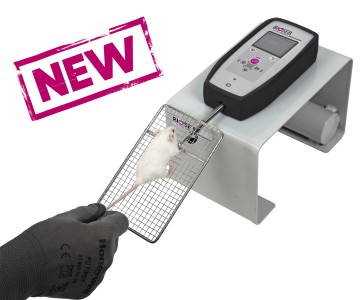Authors
S Rostami, A Haghparast, R Fayazmilani
Lab
Department of Biological Sciences in Sport, Faculty of Sport Sciences and Health, Shahid Beheshti University, Tehran, Iran
Journal
Neuroscience Letters
Abstract
Neurotrophic factors play an integral role in hippocampal plasticity, and interaction with HPA axis components, especially glucocorticoid receptors (GR), can mediate the structural and functional changes. In the present work, we investigated the long-term effects of combined exercise training (CET) and voluntary physical activity in an enriched environment (EE) in the pre-pubertal period on hippocampal neurotrophic factors and GR. For this purpose, a longitudinal study was designed. After three weeks, all rats were kept in the standard cages without any interventions until adulthood. Western blot analysis revealed a significant increase in hippocampal BDNF and VEGF protein levels in both EE and CET groups (P < 0.001), along with an increase in GR protein levels. In addition, EE decreased serum corticosterone levels compared to CET (P < 0.05). Serum insulin-like growth factor-1 (IGF-1) levels did not demonstrate remarkable changes between groups. Training interventions during sensitive developmental periods may produce profound and long-lasting effects on the hippocampus, at least in part by interactive effects of neurotrophic factors cascades and GR.
BIOSEB Instruments Used
Grip strength test (BIO-GS3)
Source :
https://www.sciencedirect.com/science/article/abs/pii/S0304394021002123#!

 Pain - Thermal Allodynia / Hyperalgesia
Pain - Thermal Allodynia / Hyperalgesia Pain - Spontaneous Pain - Postural Deficit
Pain - Spontaneous Pain - Postural Deficit Pain - Mechanical Allodynia / Hyperalgesia
Pain - Mechanical Allodynia / Hyperalgesia Learning/Memory - Attention - Addiction
Learning/Memory - Attention - Addiction Physiology & Respiratory Research
Physiology & Respiratory Research











![Dynamic Weight Bearing 2.0 – Postural Module [Add-on]](https://bioseb.com/733-home_default/dynamic-weight-bearing-20-add-on-postural-module.jpg)
























 Pain
Pain Central Nervous System (CNS)
Central Nervous System (CNS) Neurodegeneration
Neurodegeneration Sensory system
Sensory system Motor control
Motor control Mood Disorders
Mood Disorders Other disorders
Other disorders Muscular system
Muscular system Joints
Joints Metabolism
Metabolism Cross-disciplinary subjects
Cross-disciplinary subjects CONFERENCES & MEETINGS
CONFERENCES & MEETINGS 